The 5 basic concepts
Interest for sustainable growth and protecting the environment has only been getting bigger in the last few years. More specifically, the zero waste lifestyle has been becoming more popular everywhere in the world.
For interested parties and beginners, adopting a zero waste lifestyle is synonymous with a radical change in habits. Several rules and concepts guide this movement. Here are 5 key concepts that guide the lives of followers:
Refuse
The 5 Rs are pretty simple. To begin with, it’s important to know how to say no to everything that’s not essential or that’s of no use in daily life. For example, refuse company pens at conferences or brochures and product samples in stores.
Reduce
Then, you have to reduce everything you consume in general and adopt minimalist tendencies to reduce daily waste production. For example, getting rid of unused items around the house and simplifying life by only buying the essentials are good ways to reduce.
Reuse
Once you’ve reduced what you own, then you have to reuse as much as possible, meaning buy second-hand or repurpose your things.
Recycle
If you can’t reuse something, you have to recycle it. Ideally, recyclable materials must be reduced to a minimum. You should still learn to recognize packaging that is recyclable.
Rot
Finally, the last concept consists of composting all organic waste instead of throwing it in the garbage. This way, waste returns to the earth and doesn’t make an environmental footprint.
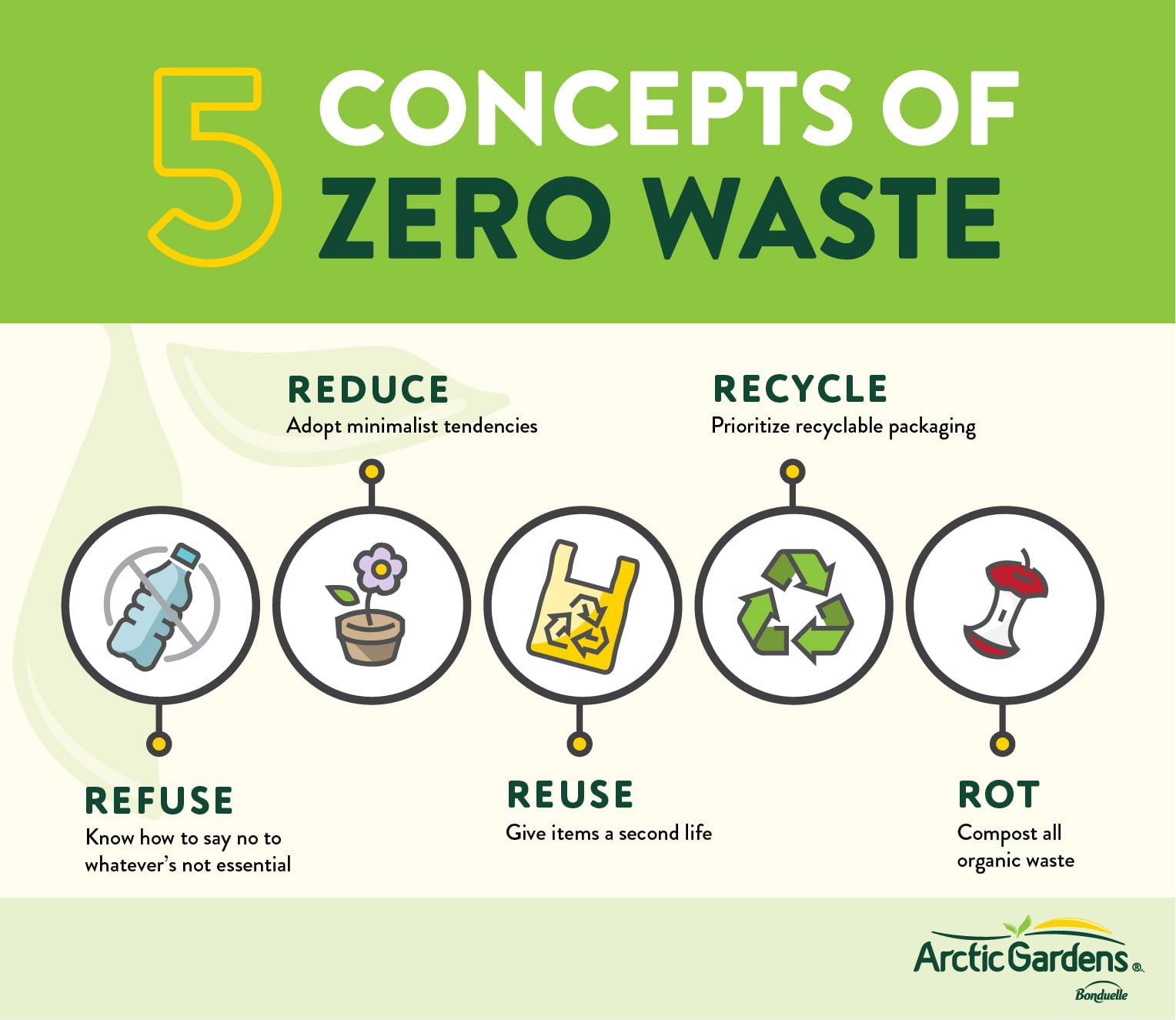
3 obstacles and 3 good incentives to get started in the movement
To learn more about the public’s perception on the zero waste movement, we’ve created an in-house survey that we’ve shared with readers. Many of you have responded and thanks to these results, we’ve discovered what incentives motivate our community to embark on this way of life. In addition, there were some interesting obstacles that came out of the survey. We’ll present the three choices that got the most votes.
Protect the environment, but how?
The incentive that got the most votes is wanting to protect the environment. Of course, protecting the environment is directly linked to daily waste production. However, according to our survey, the greatest obstacle was not knowing how or where to start. To be specific, 45% of respondents still haven’t started due to a lack of resources to do so.
The cost of being zero waste
Another running theme that emerged from the survey results was the cost associated to adopting this lifestyle. Yes, some people want to save money while others believe it would cost more than their current lifestyle. However, that’s a myth because supporters admit that they’ve saved a lot of money since starting. The decrease in cost comes mainly from minimalist consumption tendencies and buying food in bulk.
Less waste for a simpler life
Finally, the last incentive for starting a zero waste lifestyle was simplifying daily life. In contrast, other readers think that adapting is just too complicated. That’s why we’ll try to demystify the zero waste lifestyle for people who are interested in getting started.
Applying zero waste at home
Calculate your environmental footprint!
Before starting a zero waste lifestyle at home, you first have to be conscious of your own waste production. The index that illustrates the amount of waste you produce is the environmental footprint. This short questionnaire could be an activity to do with the kids to make them aware of the impact of our habits on the environment.
In the kitchen
Preparing meals and cleaning the kitchen are two significant sources of waste. Luckily, several alternative solutions and tools exist to limit them. For things like sponges and paper towels that are frequently found in the garbage, sustainable or at least compostable items should be chosen. For example, replace sponges with sustainable brushes that have a bamboo handle and paper with old absorbent fabrics that are machine washable.
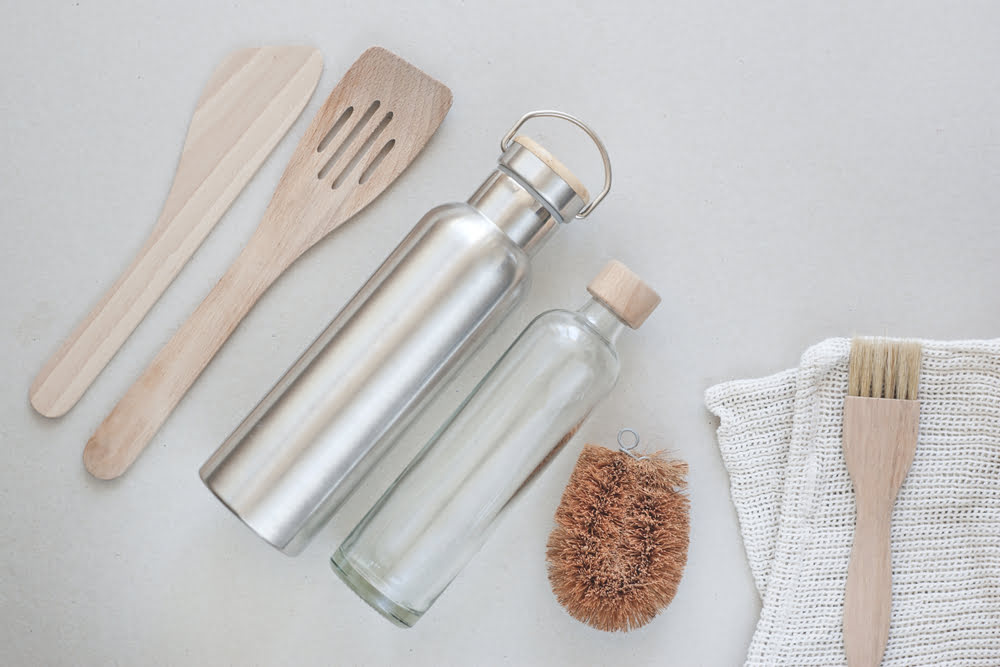
Food waste also makes up a significant amount of daily waste, but there are many ways to easily counter that. But managing your grocery list and the fridge properly is the foundation for good habits. A simple trick to reducing food waste is by reducing portions. This way, the freezer is optimized by freezing the extras. Otherwise, making a meal with leftovers is an even better way to avoid throwing away food that’s still good. Cooking with leftovers is an art that you should master if you want to live a zero waste lifestyle.
If it’s just not possible to cook leftovers, the final solution is composting. Not all cities in Quebec collect organic waste, but household composting still remains an interesting alternative.
To reduce individual packaging, buy in bulk. This may seem daunting and complicated at first, but you’ll just need several containers or bags and label them properly. And buying in bulk doesn’t have to be limited to the kitchen. It’s also possible to find cleaning and beauty products in bulk which are often less expensive. As well, cooking at home more often, like making your own bread or snacks, can significantly reduce food waste production. Meal prep techniques can also help you get the most out of your purchases.

Finally, buying local really contributes to the zero waste movement. Since greenhouse gas emissions from transport are reduced, your environmental footprint is reduced accordingly. Local food at the market often uses less packaging, so don’t forget your reusable bags for your purchases. To avoid being caught off guard, leave your bags in the car or at the front door to keep them close by.
In the bathroom
As for the bathroom, cosmetics, hygiene products and cleaning products are problematic for a zero waste lifestyle. The main dilemma is the ingredients in them. Zero waste supporters often prefer natural ingredients in their cosmetics and hygiene products. Several recipes are available online, you just have to look! But be careful. Even if the ingredients are natural and well-known, it’s possible that your skin will react poorly to some recipes. So be sure to test everything on a small surface of your skin before applying on a larger surface.
For all other disposable items, choose ones that are compostable (ex., dental floss, bamboo toothbrushes). Cotton makeup removal pads and toilet paper made from recyclable materials are other ecological choices to adopt.
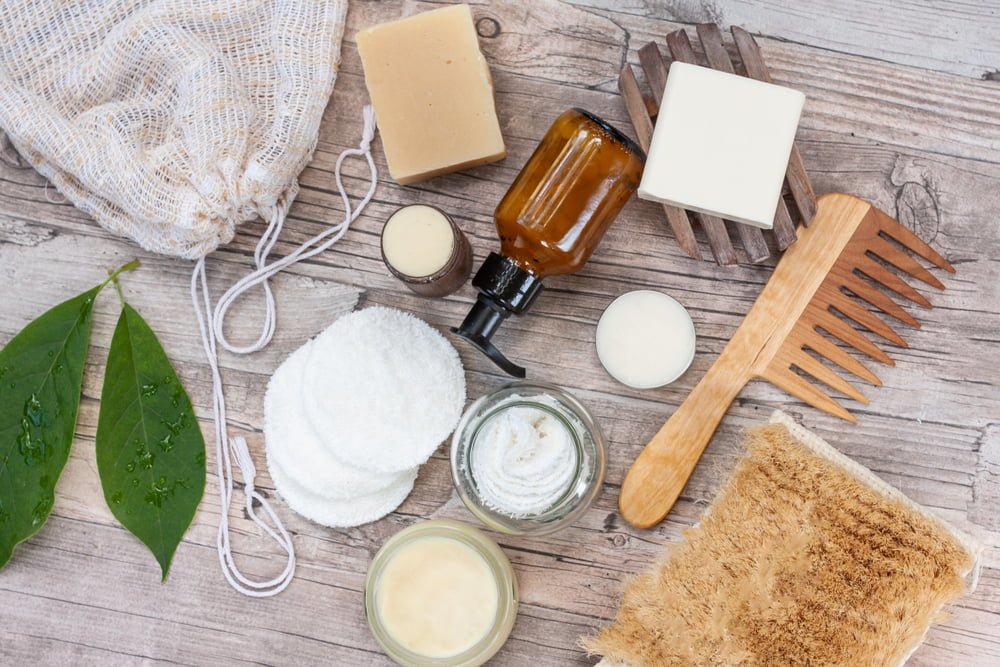
In the rest of the house
Besides the kitchen and bathroom, you can adopt several habits to live a zero waste lifestyle. First, for all future purchases, it’s important to look for sustainable items. For example, choose toys made of wood for your kids instead of toys that break easily. Then, you’ll have to get creative and containers a give a second life. If that’s not possible, recycle as much as possible. According to the rules of the art, recycling is one of the last resources for a successful zero waste lifestyle. Ideally, you should reduce consuming packaging as much as possible, including recyclable materials.
Accepted material for the recycling bin
Containers, packaging, printed matter and newspaper
PAPER AND CARDBOARD
- newspapers, flyers, magazines
- paper, envelopes and paper bags
- books, phone books
- cardboard rolls
- cardboard boxes
- egg cartons
- milk cartons and gable top juice cartons
- aseptic containers (TetraPak™ type)
PLASTIC
- bottles, containers and food product packaging, beverages, cosmetics, personal hygiene and household cleaning products identified by one of these symbols:
- caps and lids
- plastic wrap and bags
GLASS
- bottles and jars, regardless of colour
METAL
- aluminum paper and containers
- aluminum cans and bottles
- cans
- caps and lids
If you have a green thumb, collecting rainwater is also a good way to manage a sustainable garden. As well as growing your own fresh food at home, you’ll have a productive garden because of the collected rainwater and compost.
Finally, you can also incorporate zero waste habits in your closet. In fact, followers of the movement prefer to buy their clothes second-hand and not new. There are incredible discoveries to be made at thrift shops! Otherwise, you can learn to sew to mend clothes (if possible) instead of replacing pieces. Another movement that’s gaining popularity in the last few years is the capsule wardrobe. It’s about choosing 30 or so pieces of clothing that mix and match well together. This way, overall annual clothing consumption is reduced and a recurring stress is eliminated. This kind of minimalist tendency can be applied to several aspects of your life. It’s just important to keep in mind that these changes and sticking to them are better when you start gradually.
Starter kit
To help you get started in the zero waste movement, we’ve compiled a short list of items to add to your lifestyle habits that will help you reduce your consumption of plastic.
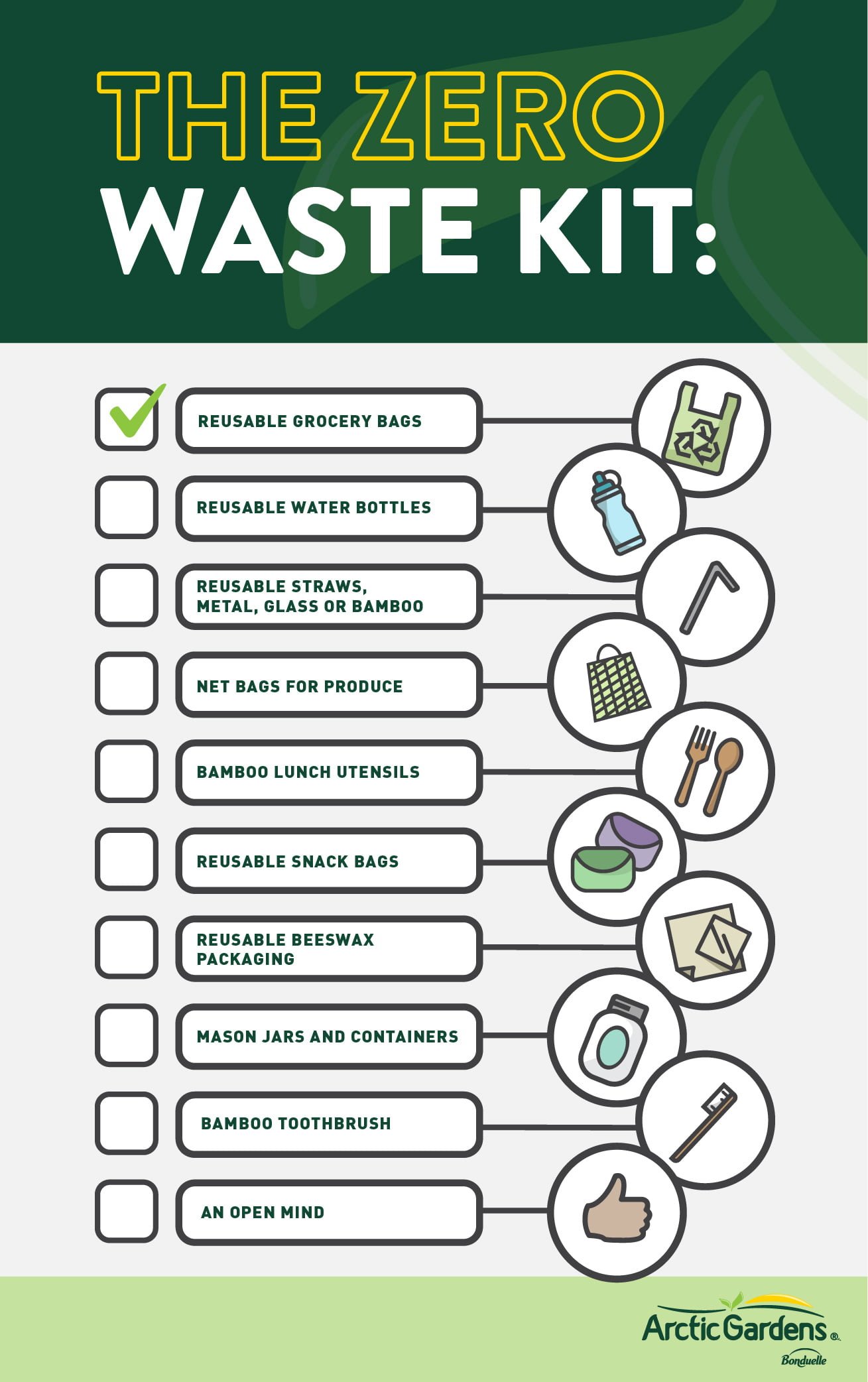
Challenge: 1 month intro to zero waste
Don’t know how or where to start? Try our one-month challenge to immerses yourself into the zero waste universe. Challenge your friends and let us know in the comments section which challenge was the most difficult.
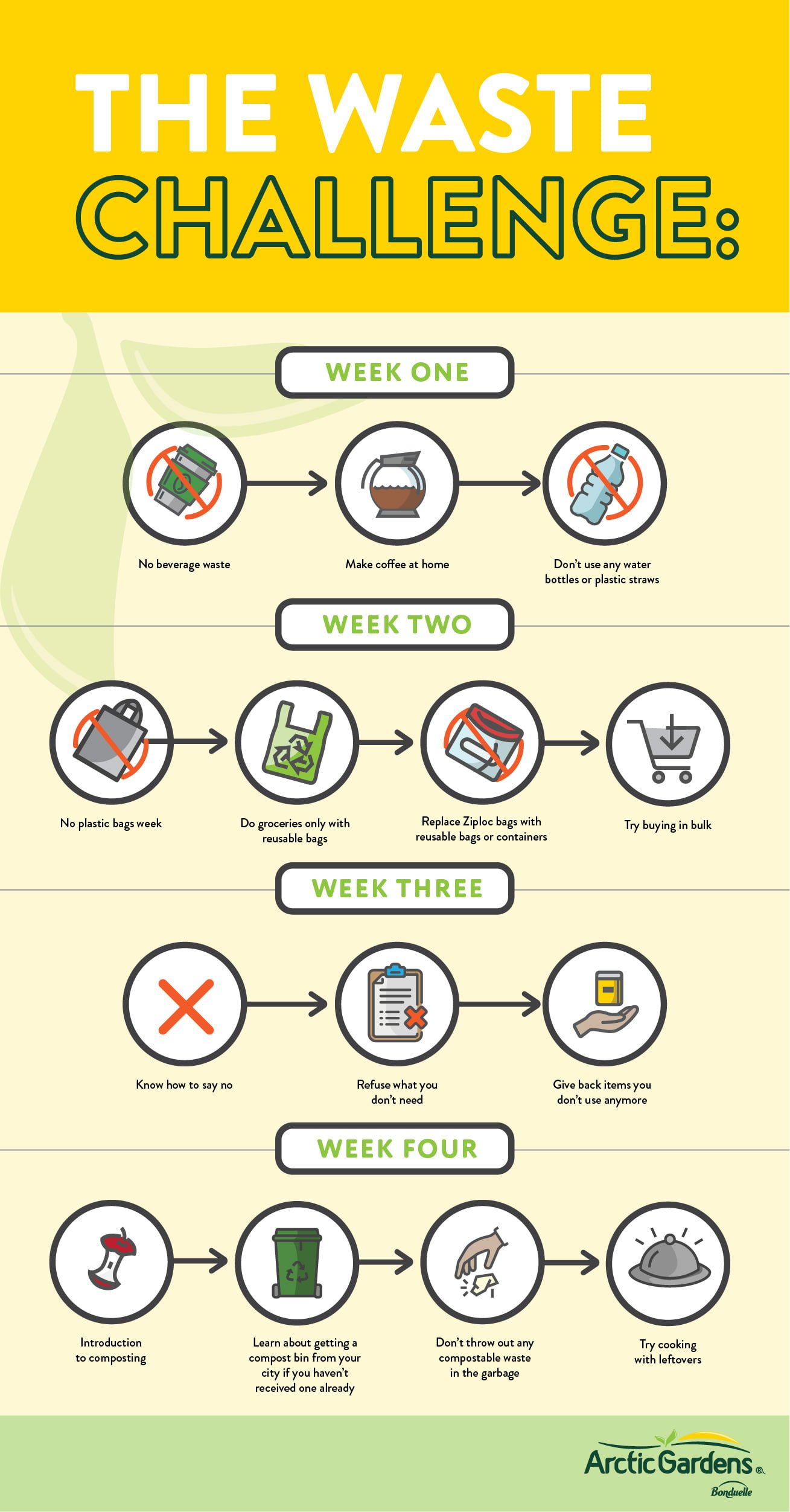
How to keep up good habits
Now that you know a ton of tricks and advice on joining the zero waste movement, we’d like to give you a few guidelines on how to keep up these new habits. To properly integrate behaviours, always keep in mind that you must do it gradually. So don’t get rid of all your products and replace them with zero waste solutions right away. That would be really contradictory. First, use up what you have before substituting them. Creating reminders on your phone to remember your reusable bags is also a good way to assimilate this behaviour. Finally, for motivation, try getting the whole family involved as a group and make them aware of protecting the environment.
To find out where you can make your next sustainable purchases, consult the interactive map of the Circuit Zéro Déchet to see which Quebec merchants are part of the movement!
Any reason is a good reason to join the zero waste movement, but above all, every action you make for the environment helps to change things. The important thing is to persevere and make those around you aware of the environmental protection cause. Do you have other practical tips about the zero waste way of life that we haven’t discussed? Let us know by sharing your comments.

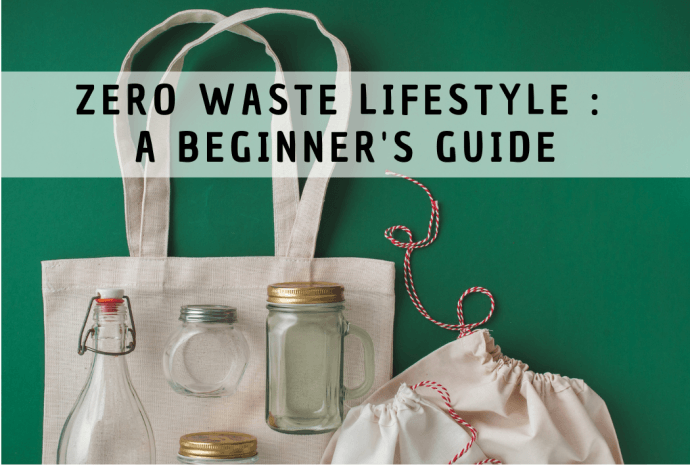

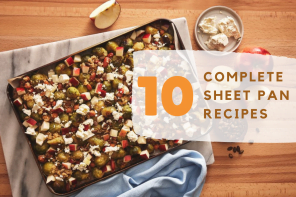

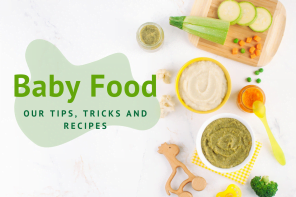
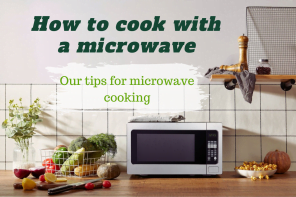


How does Arctic Gardens work towards a zero-waste society? Is the packaging really recyclable? OR does the company accept that packages be returned to them, like Europe’s Best fruit does?
Hi Deborah,
Thank you for your comment.
We are currently working to make our packaging totally recyclable and it should be coming really soon. We are also working on bulk concept with partners to understand how to integrate them into supermarkets.
We are very aware of the zero-waste concept and we are working hard to get better, especially since Bonduelle wants to become a Bcorp.
Have a wonderful day !